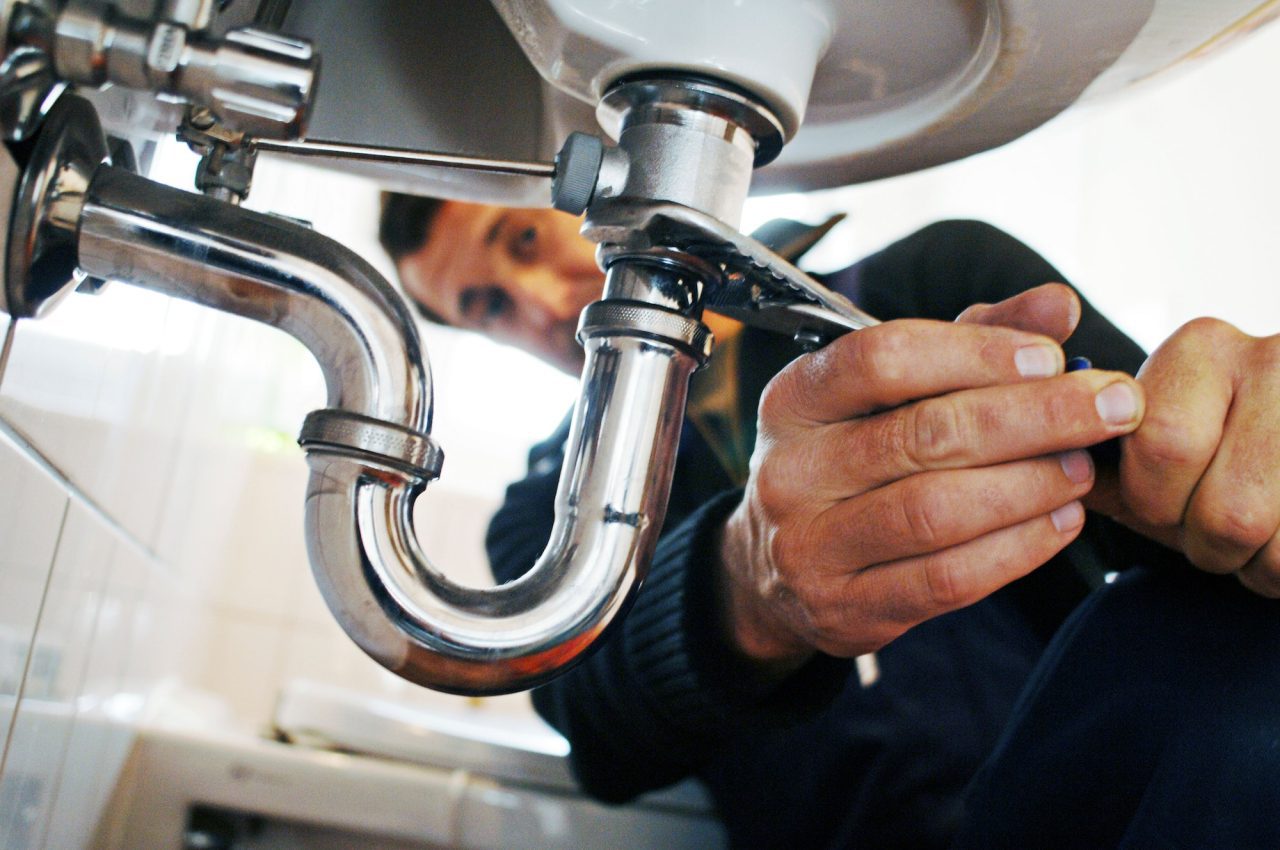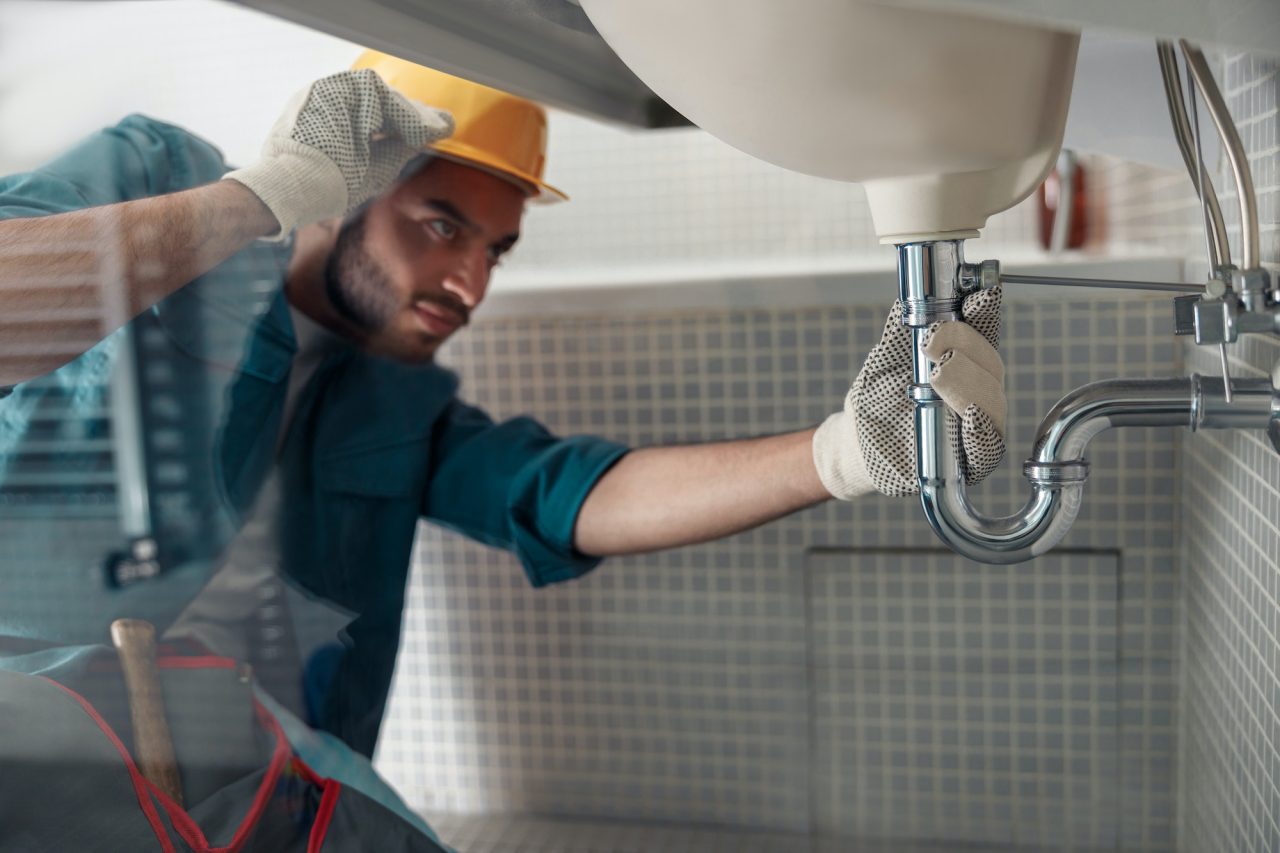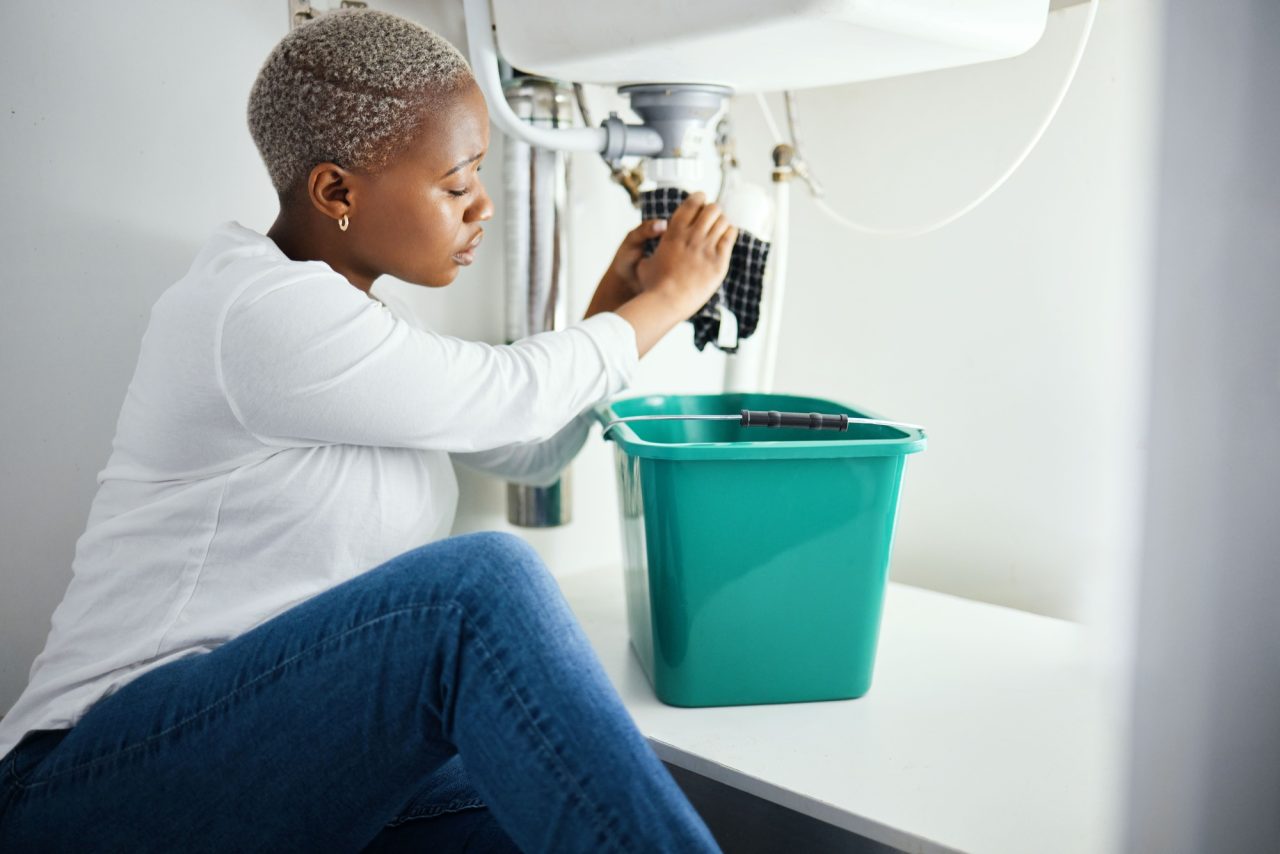Key Takeaways
- Hard water, aging plumbing, and earthquakes in Sonoma County present special issues that call for specific maintenance and upgrades to safeguard kitchen plumbing.
- Routine inspection and maintenance of pipes, fixtures, and appliances prevent scale buildup, leaks, stubborn clogs, and low water pressure. All of these are common kitchen plumbing problems in new and older homes.
- DIY plumbing fixes are a recipe for misdiagnosis, band-aid repairs, and voided warranties, which is why our expert plumbers in Sonoma County want you to always call in the pros.
- If you wait to make plumbing repairs, you risk water damage, mold, and expensive utility bills, making the case for quick action and preventive maintenance.
- From water filtration systems to PEX repiping and smart leak detectors, modern solutions make your water healthier, your system longer lasting, and leaks caught early, injecting efficiency and peace of mind into your kitchen plumbing.
- Building a rapport with a trusted plumber guarantees assistance for emergency and difficult repairs, safeguarding your home and investment for years to come.
Sonoma County kitchen plumbing problems usually involve leaking under sinks, clogged drains, or low water pressure. A lot of the homes around here have vintage pipes that tend to rust or fracture, resulting in watermarks or sluggish drainage. Local water hardness creates build-up inside pipes, so blockages are more frequent. Homeowners experience issues such as leaking faucets, loose connections, and sour odors emanating from drains. Little problems, if not repaired, tend to turn into larger, expensive fixes. Being aware of the kind of plumbing problems Sonoma County is likely to deal with assists people in detecting trouble at an early stage. For new transplants or first-time homeowners, obvious indications assist with quick repair. The following paragraphs identify the most common kitchen plumbing problems and easy ways to test them.
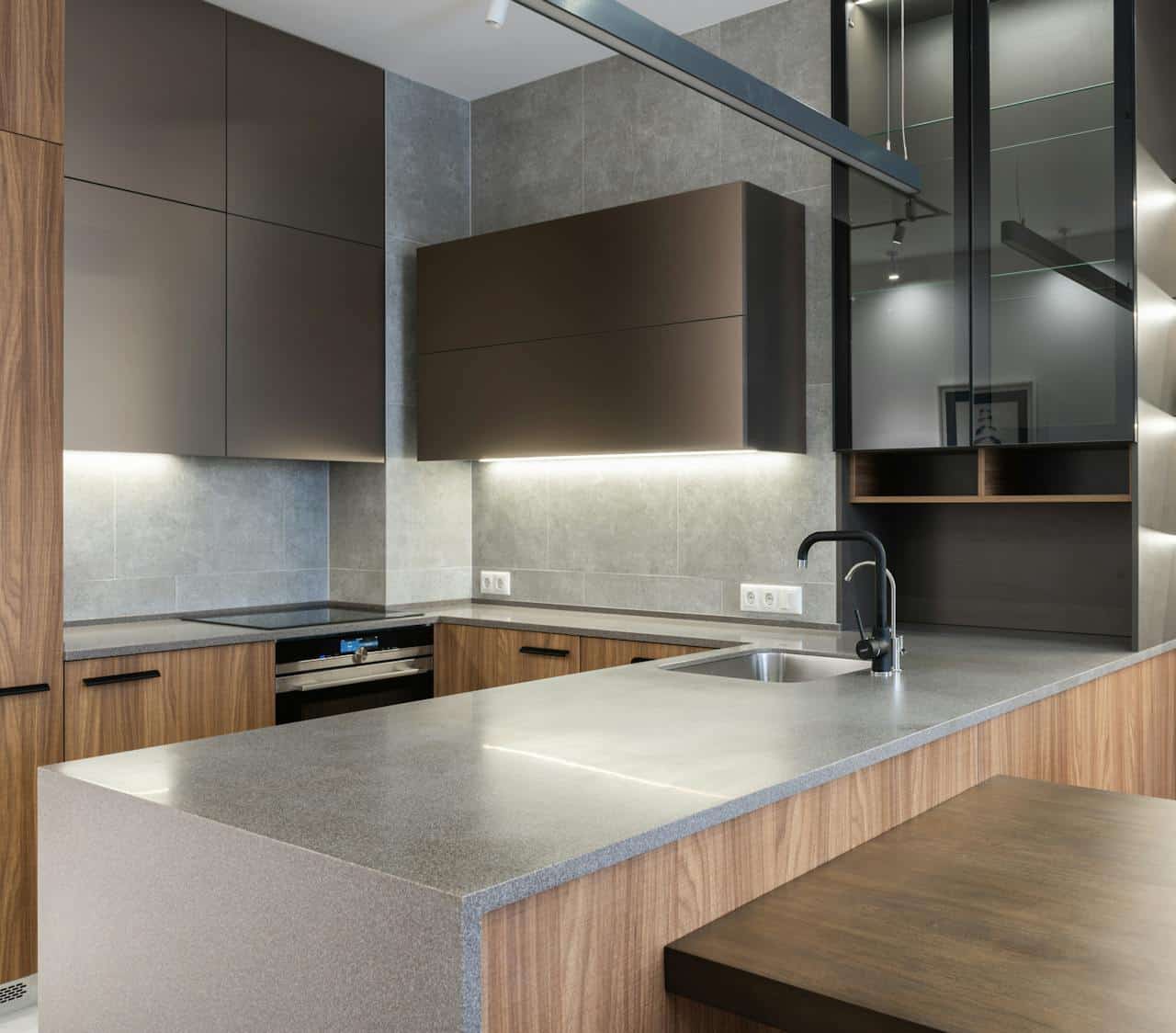
Sonoma County’s Unique Plumbing Environment
Sonoma County’s kitchen plumbing issues are a result of a combination of older houses, mineral-rich groundwater, and environmental hazards. A lot of properties have vintage pipework and, particularly in rural areas, septic systems that require specialized attention. Frequent seismic activity influences how plumbing is handled.
Hard Water Impact
Sonoma County is a hard water hotbed, with our water laden with calcium and magnesium. This creates scale deposits in pipes and appliances. The build-up of minerals eventually restricts the flow of water, clogs pipes, and diminishes the efficiency of your water heater and dishwasher.
- Faucets and fixtures get crusty white deposits that take the shine out of their finish.
- Valve washers wear out sooner, and this causes leaks and low water pressure.
- Appliance lifespans shorten as mineral buildup stresses internal components.
- Pipes can rust or become clogged, increasing the potential for expensive repairs.
A water softener is usually the best way to mitigate mineral deposits. Taking the calcium and magnesium out of your water makes your systems run smoother and last longer. A little maintenance, such as descaling appliances and flushing your pipes, goes a long way in minimizing the damage and keeping your kitchen plumbing working well.
Older Home Systems
Many of the older homes throughout Sonoma County are still on galvanized steel or clay pipes. They corrode, rust, or crack, particularly when exposed to hard water or invasive tree roots. Clogs are clogged, especially when small items or mineral debris become ensnared in the old lines.
Sometimes old plumbing just doesn’t meet code anymore, so it needs to be upgraded. By swapping out old fixtures and pipes for new, code-compliant materials, you’re offering a better guarantee of safety and efficiency. When your pipes are on their last leg, they show it in the form of low water pressure, rusty water, and persistent leaks.
Homeowners should schedule regular inspections to identify wear and tear before it becomes evident. Preventive repairs or timely replacements can prevent small problems from becoming major plumbing disasters.
Seismic Activity
Earthquakes are the plumbing pirate of this area. Earthquakes can cause pipes to rupture or shift, resulting in leaks or sudden water loss. Retrofit solutions, like flexible joints and bracing, stabilize plumbing against quake-related damage.
Emergency repairs are sometimes required post-quake, as pipe fissures aren’t immediately apparent. Being informed about local building codes keeps plumbing systems resilient to these threats.
Common Kitchen Plumbing Problems
Regular kitchen plumbing issues can be avoided with regular maintenance, but stubborn issues still pop up because of ancient pipes, hard water, or bad habits. Knowing the most frequent issues lets homeowners educate themselves and keep their systems running efficiently for years to come.
1. Persistent Clogs
Kitchen clogs are among the most common, and they’re usually the result of grease, food waste, or other items that don’t belong. Occasionally, tree roots invade your old clay or steel pipe systems and cause a clog that a mere plunger can’t address. Mineral buildup from hard water whittles down the interior diameter of pipes, decreasing flow and increasing the likelihood of clogs. Get clogs professionally cleaned because chemical drain cleaners corrode pipes. Instead, safer options such as baking soda and vinegar or salt and boiling water are often more successful. Simple things like clearing out the P-trap every few months can really help. Educating on correct disposal, such as keeping grease and stringy foods out of the sink, avoids many future clogs.
2. Leaky Faucets
Leaky faucets continue to be the most common home plumbing repair. Even small ones can waste hundreds of liters a year, which nobody needs and which all adds up to water bills and can cause water damage. A speedy diagnosis, typically, worn washers or O-rings, can fix most leaks. New, efficient faucets can reduce the chances of problems recurring and are more water-efficient. Regular checks catch small drips before they turn into costly repairs.
3. Low Water Pressure
Kitchen low water pressure is the worst. Testing the pressure helps identify if the issue is with the supply lines, valves, or mineral buildup in pipes. Hard water is a common culprit, creating blockages that restrict flow. Occasionally, old corroded pipes are to blame. A plumber’s consultation reveals the most practical repair. Routine system maintenance keeps appliances and fixtures running smoothly.
4. Garbage Disposal Failure
Garbage disposals get jammed, their motors burn out, and they get clogged. Abuse, like jamming in fibrous foods or hard things, is a frequent culprit. Consumers should adhere to the manufacturer’s instructions and not overfill the unit. Intricate problems require a professional’s intervention to avoid causing more harm. If disposals keep breaking, replacement could be the most efficient and safest option.
5. Unpleasant Drain Odors
Odors usually stem from food stuck in pipes or bacteria. Regular scrubbing, either with home remedies or a professional, keeps drains fresh. Stubborn odors could be an indicator of more serious issues, such as accumulation in the trap or venting issues. Homeowners need to maintain drains and not dump grease or large particles down the sink.
Why DIY Fixes Often Fail
The majority of kitchen plumbing issues appear to be easy, so most homeowners attempt a quick repair. Most don’t perceive the hazards. That’s a big reason why do-it-yourself fixes for kitchen plumbing in Sonoma County often don’t measure up. Among them are misdiagnosis, the wrong materials, a lack of tools, and ignoring local codes. These failures can result in larger, more expensive issues later.
- Misdiagnosis is common. A dripping tap might indicate high water pressure or even corroded pipes, not simply a worn washer. Homeowners miss the larger issue, addressing nothing more than the symptom.
- It’s dangerous to use incompatible materials or make improper repairs. Chemical drain cleaners, for instance, can corrode pipes, injure the environment, or even scald.
- Without the right tools, DIY fixes can be temporary. For example, installing a water heater requires very specific expertise and equipment. One little mistake can lead to leaks and more.
- Stepping on local codes means you’re violating them. All of them, Sonoma included, have specifications for materials and installation. Overlooking this step can jeopardize safety.
- Mixing pipe types, for example, PVC and copper, can cause leaks or fast corrosion. Every material is different when it comes to pressure or temperature.
- Grease and food-clogged drains come right back if you don’t do a proper reset. Drain screens and regular cleaning all help, but DIYers may omit them.
- Toilets or water heaters that were installed poorly can cause hidden leaks, water damage, or mold.
- Soil and climate matter. Some soils and temperature swings in Sonoma County require particular ways to fix or certain materials to fix that will last.
Misdiagnosing Issues
Rightly diagnosing the true source of plumbing nuisance isn’t always straightforward. Homeowners should watch for cues: slow drains might mean more than a simple clog. Water stains hint at hidden leaks. After all, sometimes a small trickle means a massive problem. Guessing wrong can mean repairing the incorrect component, which wastes resources and funds. It’s wise to consult an expert for the tricky stuff. Specialists have equipment to test water pressure, sniff out concealed pipes, and detect early indications of corrosion or soil movements.
A typical error is assuming a sink leak is caused by a bad seal when the source is the main supply line. This can lead to constant patching and water damage. Early professional intervention helps you avoid this trap.
Temporary Solutions
Quick fixes are seductive. Tape or sealant can temporarily halt a leak, but it’s not going to repair rusted pipes or excess pressure. Over time, these band-aids come off, allowing water to trickle down into walls or floors. This can cause mold or even structural damage. When you invest in a real repair, the root cause gets solved, so the problem doesn’t come back. Why DIY Fixes Don’t Work. It’s hard to find a quick fix that will hold up to daily use or weather changes, particularly in regions with extreme temperatures or water pressure fluctuations.
Delaying a complete repair can transform a minor blockage into a ruptured pipe. It’s smarter to solve the whole thing right away, sparing stress and saving money.
Voiding Warranties
A lot of plumbing parts and fixtures are under warranty. A DIY fix can void these warranties if the work is not up to par. This is a major gamble. If something breaks down later, the manufacturer won’t pay for it. For example, a DIY water heater installation, even if done with good intentions, can leak, leading to exorbitant water bills and water damage. Waiting to call a professional can allow small leaks to fester into larger ones, increasing your risk of mold or inflated utilities. Timely professional repair maintains warranties and keeps long-term costs down.
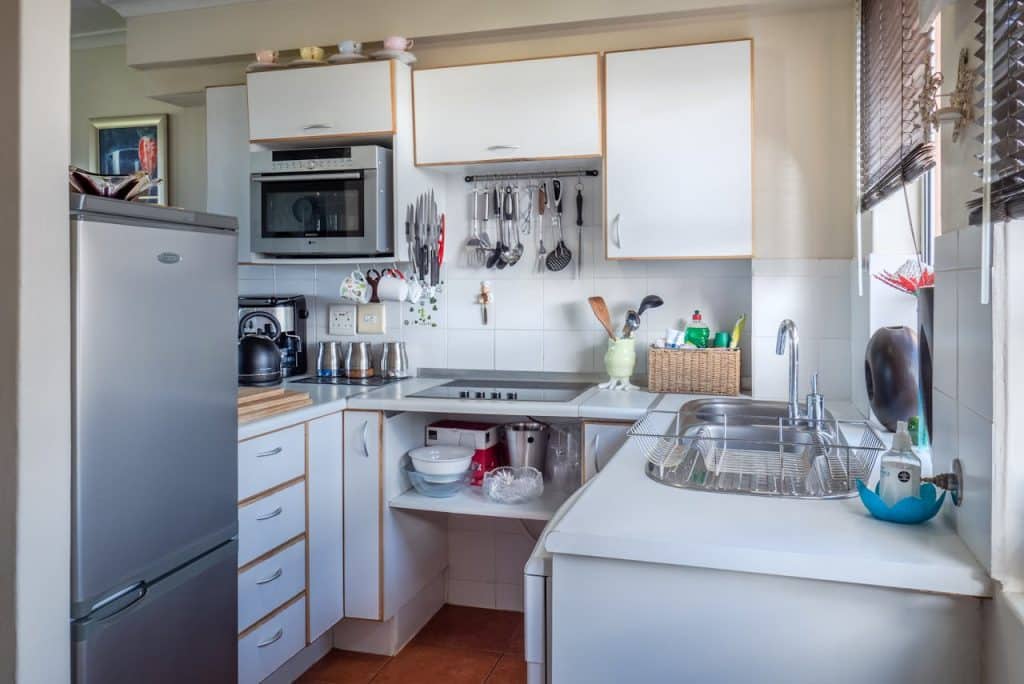
The Hidden Costs Of Delay
Putting off kitchen plumbing repairs might seem harmless—but the true cost of delay can be far greater than you think. Water damage doesn’t announce itself with a splash; it creeps in quietly, seeping through walls, warping cabinets, and breeding mold long before you notice a problem.
What starts as a slow drip can soon lead to thousands in repairs. Today, water damage restoration can range from $1,000 to over $7,000, depending on the extent of the leak and the materials affected. That figure doesn’t include the potential for temporary relocation, time lost, or health risks from mold exposure.
In regions with fluctuating temperatures, metal pipes expand and contract, making them more prone to bursting—especially in older homes with outdated plumbing. And when small leaks turn into emergencies, the repair costs skyrocket.
On top of that, permit fees, inspections, and local compliance requirements can easily tack on another $2,000 to $4,000 to your bill. Hidden issues like outdated wiring or corroded pipes discovered mid-repair often lead homeowners to exceed budgets, which is why experts recommend setting aside a 10–15% contingency fund.
If you’re combining plumbing work with a full kitchen remodel, brace for a longer timeline—sometimes stretching up to 12 months. That’s a year of dust, noise, and disruption, not to mention the loss of comfort and routine that comes with a partially unusable kitchen.
In short, delaying that “minor” plumbing fix can set off a domino effect of expenses, headaches, and surprises. Acting early isn’t just about saving money—it’s about protecting your home, health, and peace of mind.
Water Damage
Water damage is a quiet but unforgiving enemy to a kitchen’s integrity. Early indicators are stains on walls or ceilings, warped cabinets, and musty odors. These signals are often plumbing leaks waiting to be addressed. Financially, if you don’t act quickly, you’re looking at repair bills that vary from minor to full restorations costing tens of thousands of dollars. Health risks increase precipitously 24 to 48 hours after water intrusion, as wet, dark areas are optimal for mold growth. Mold remediation is not a band-aid solution; it must be professionally handled to ensure safe, comprehensive removal and prevention of future growth. Diligence in drying and ventilating spaces is important in reducing these hazards.
Mold Growth
Mold loves unaddressed leaks. High humidity, water pooled beneath sinks, or consistent condensation all lay the groundwork for infestations. Mold, once it appears, spreads rapidly, compromising indoor air quality and endangering inhabitants with allergies or respiratory issues. Turning a blind eye to leaks allows mold spores to cultivate in out-of-sight nooks and crannies, making removal that much more difficult and expensive. Here, quick action is essential. Expert mold remediation eliminates colonies and treats contaminated areas. By keeping the kitchen dry, mopping up spills, and encouraging good airflow, you minimize the risk of mold returning.
Higher Utility Bills
Plumbing inefficiencies frequently manifest themselves in elevated water bills. A slow drip leaks liters of water per day, unobserved until monthly bills soar. Paying attention to unaccounted water use spikes and inspecting for moisture under sinks or behind appliances can uncover hidden leaks. Scheduled service finds minor issues before they blow up expenses. Expert plumbers use technology to detect leaks and repair them, minimizing water loss and stabilizing utility bills.
Innovative Plumbing Solutions
Modern plumbing upgrades are efficient and provide peace of mind. Smart leak detectors can tell homeowners when water is flowing where it shouldn’t be, so they can prevent expensive damage. PEX piping is flexible, corrosion-resistant, and outlives the competition, making it a smart choice for those aging homes. Water filtration systems improve the situation by reducing contaminants and mineral build-up that damages pipes. These innovations not only protect property but also generate long-term savings by reducing occurrences of failure and emergency repairs.
Modern Plumbing Solutions
Modern plumbing solutions use new tools and smarter methods to repair age-old and current issues found in kitchens around the world. Homeowners seek safer water, fewer leaks, and less waste. Leveraging innovative components ranging from PEX piping to smart technology, these solutions optimize how kitchens function. They suit various climates and requirements, from riverside homes to hectic urban flats. Adding water conservation, smart leak detectors, and eco-friendly selections to the mix makes these upgrades even more valuable.
Water Filtration
Water filters provide purer and healthier water by eliminating chlorine, lead, and other contaminants. This improves the taste of tap water and promotes wellness, particularly in regions where water quality fluctuates seasonally or geographically. Filtering extends the lifespan of appliances and fixtures, too, as it prevents mineral and sediment buildup in pipes, dishwashers, coffee makers, and more.
Maintenance, such as replacing filters or flushing, is crucial. Without it, filters get clogged and don’t work as well. Every home requires the correct solution, be it a basic carbon filter or an entire reverse osmosis system. The best option depends on water tests and household size. It’s wise to consult a plumber before purchasing, so the system fits your needs.
PEX Repiping
PEX, a flexible plastic pipe, is superior to old metal pipes in many different ways. It bends around corners, so fewer joints can leak. PEX does not rust or corrode, even in homes with wonky water quality. This keeps water flowing well and minimizes the chance of secret leaks in walls or under floors, which is prevalent in homes older than thirty years.
It’s expensive to switch to PEX initially, but it means fewer repairs in the future. Of course, only good plumbers should install PEX, as any errors may cause leaks or system failures! A good one lasts for decades and reduces water waste.
Smart Leak Detectors
Smart leak detectors catch leaks quickly. They notify your phone immediately if water is detected where it shouldn’t be, such as beneath sinks or behind refrigerators. This quick alert lets you take action before damage escalates.
These are simple to install, frequently battery-powered, and linked to home Wi-Fi. Lots play nicely with smart home systems, allowing you to turn off water from your phone even when you’re out of town. Deploying smart tech for plumbing introduces peace of mind and aids in conservation, particularly where resources are scarce.
Professional Plumbing Services
Creaking warning signs like clogged slow drains, low water pressure, or damp patches on your walls signal it is time to ring the expert. Others require specialized tools or expertise, and DIY attempts can make the problem worse.
Periodic inspections from an experienced plumber catch issues in their infancy. This keeps your kitchen plumbing robust and prevents small problems from becoming big ones. Fast fixes save your home from flooding, mold, or expensive appliance damage.
When To Call A Professional
Kitchen plumbing can quickly shift from a simple DIY fix to a serious problem that demands professional expertise. Knowing when to stop and call a plumber can save you from costly damage and unnecessary stress. Here are the key times to bring in a pro:
- Emergencies: When water is gushing, a pipe has burst, or your kitchen is flooding, call a plumber immediately. These emergencies can cause extensive damage to floors, cabinets, and even promote mold growth if not addressed right away.
- Persistent clogs or backups: If your drains remain slow or your toilet keeps backing up despite your best efforts, it could mean a deeper issue in the main line or aging pipes. Professionals use specialized tools like inspection cameras and deep-reach drain snakes to locate and eliminate the root cause.
- Complex installations and repairs: Projects such as installing a new water heater, repairing sewer lines, or replacing intricate valves should be left to licensed plumbers. These jobs often involve gas lines and must comply with local codes. Mistakes can result in leaks, fire hazards, or even fines.
- Unusual warning signs: Reduced water pressure, strange noises like banging or hissing, or a sudden spike in your water bill may signal hidden leaks or damaged valves. These issues are often beyond the reach of over-the-counter drain cleaners and DIY fixes.
- Safety concerns: If a leak persists, or you’re unsure about your plumbing materials or the space you’re working in, don’t risk injury or property damage—call a professional. Working in tight spaces or elevated areas can be unsafe without proper training and tools.
- Preventive action: Establishing a relationship with a trusted local plumber before an emergency happens is smart planning. When problems strike, you’ll already know who to call, saving time and reducing stress.
Spotting plumbing issues early can help you avoid costly repairs and keep your kitchen in great shape. Acting quickly means you can protect your home and save money.
Conclusion
Sonoma County kitchen plumbing can really throw you some trials. Hard water, aging pipes, soil shifts—they all wreak havoc on sinks and drains. Short-term solutions can feel clever in the moment, but drips or clogs tend to return. Some just drip and drip and drippity drip, letting a few small drips run and water bills climb fast. Today’s plumbers have do-it-right tools, find leaks with cameras, and replace bad pipes with less disruption. Most people either wait way too long or attempt home remedies, which can cause scary expensive repairs down the road. Know yourself. If water pools, pipes knock, or you smell mold, get a pro in. Good plumbing provides you with time, money, and stress savings.
Frequently Asked Questions
1. What Are The Most Common Kitchen Plumbing Problems In Sonoma County?
Leaking faucets, clogged drains, and low water pressure are common. They are usually caused by our area’s hard water and old pipes.
2. How Does Sonoma County’s Water Quality Affect Kitchen Plumbing?
Sonoma County hard water can leave mineral deposits in your pipes and fixtures. This causes clogging and shortens the lifespan of plumbing.
3. Why Do DIY Kitchen Plumbing Repairs Often Fail?
DIY fixes might not get to the source. Without the right tools and experience, band-aid fixes can result in more significant issues and more expensive repairs down the line.
4. What Risks Come With Delaying Kitchen Plumbing Repairs?
Putting off repairs can lead to water damage, mold, and expensive repairs. A prompt response minimizes damage and protects your kitchen.
5. What Are Some Modern Solutions For Kitchen Plumbing Issues?
Today’s plumbers employ technology such as camera inspections and environmentally-friendly materials. These solutions repair issues more quickly and assist in preventing future issues.
6. When Should I Call A Professional Plumber For My Kitchen?
If you see recurring leaks, water stains, or slow drains, call a professional. Experts can identify and fix intricate problems securely and effectively.
7. Are Professional Plumbing Services In Sonoma County Environmentally Friendly?
A lot of local plumbers use water-saving fixtures and eco-friendly materials. This helps you save water and be environmentally sound.
Faucet Repair & Kitchen Plumbing In Santa Rosa – Fast, Honest, Local Help
Leaky faucets, low water pressure, or plumbing issues in your kitchen can quickly disrupt your day. Don’t let a small drip or faulty fixture turn into a bigger, costlier problem. The trusted team at Yorkshire Plumbing provides expert faucet repair and kitchen plumbing services to keep your home running smoothly.
With nearly a decade of experience and the right tools for the job, we deliver real solutions, not quick fixes. From repairing worn-out faucets and clearing clogs to upgrading sinks, fixtures, and water lines, our licensed plumbers are ready to help.
Whether you’re dealing with a leaky kitchen faucet, planning a remodel, or facing unexpected plumbing trouble, Yorkshire Plumbing has you covered. Call or message us today for a free estimate. We offer same-day service when possible and are always available for urgent jobs.
Yorkshire Plumbing is your go-to, family-owned team for reliable faucet repair and kitchen plumbing in Santa Rosa.
Disclaimer
The information provided on this website is for general informational and educational purposes only and is not intended as professional plumbing or construction advice. You should consult with a licensed plumber or qualified contractor for guidance specific to your home or situation. Do not rely solely on the content of this site to make decisions about plumbing repairs, installations, or maintenance. While we strive to keep the information current and accurate, it may not reflect the most recent industry standards or code requirements. Yorkshire Plumbing & Drain Services disclaims all liability for any actions taken or not taken based on the content of this site, to the fullest extent permitted by law.



